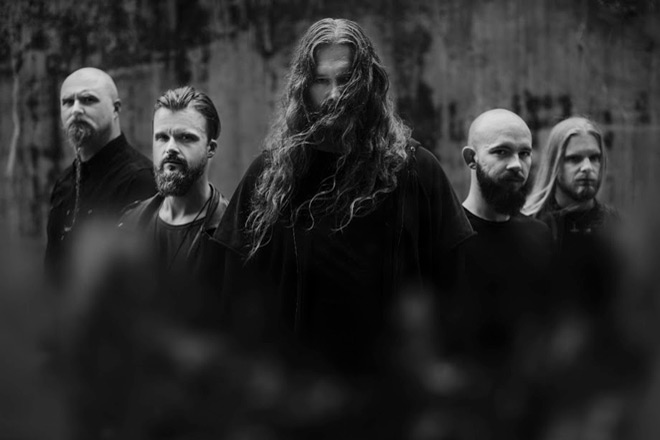
At times achieving a level of epic grandeur reached for by many and attained by few, Brun and company are set to return with True North, their eleventh studio album, on September 27th via Century Media Records. Recently, the mastermind behind one of the foremost Extreme Metal institutions about the new album sat down to chat about the endless quest for inspiration, and many other interesting topics.
Cryptic Rock – Very soon Borknagar will celebrate its 25 year anniversary. When you began this journey, Black Metal had exploded and there were a lot of hardline genre definitions. Did you ever think that going against the grain, making art that’s difficult to categorize and didn’t fit into any boxes, would yield such successful results all this time later?
Øystein Brun – Good question, really good one. You know, I’ve always been kind of a lonely wolf, I would say, in terms of doing things. So, you know, for me it was … I’ve always swung myself to the old side of everything. I’m not the most social guy around: I don’t go to pubs to relax, and I’d rather go to the forest or to my studio nowadays. But you know, when starting out back in the day I’d been fiddling around with the ideas about this band since I think it was already back in 93 or something. I remember I got the logo in ’94. It has definitely been a long ride. But back then I was very determined to create my own musical universe in a sense. And you know, I was young, kind of naïve, but still very determined to basically just create music I loved, music I had not found up to that point.
My musical background was pretty much that my father was an old hippie and I remember he imported a lot of LPs from the UK. I was listening to them as a kid and so many mornings I woke up to like Pink Floyd “Shine On You Crazy Diamond,” or whatever my father was playing loud on his big speakers. I kind of got this, I would say, atmospheric ’70s, a bit progressive influence from all of that. Of course, he also listened to the classics, but he also listened to a lot of bands that weren’t really common back then either. So, it was kind of off the trail kind of music.
So yeah, I had my dream of a band. I began a Death Metal band called Molested and that was really cool times. It was kind of being an apprentice, learning to play guitar, and we rehearsed and all that for four years, I think every second day. Really intense period. But at that point when it came to it, we ended the whole band because of natural circumstances – military service, astute study, all that stuff. I was heading to a place where I had to make something unique, something out of the box, something … Quite simply my own musical universe. I’ve always been very fascinated with bands that have done that. For me Pink Floyd is such a band. I mean, there is nothing like them in this world – even the songwriting, the guitar tone, the covers, the whole set up, it’s completely unique.
The same goes with Iron Maiden, for example. They had their own approach, the logo. If you put on a record from them, in an instant you will hear someone say, ‘Yeah, it’s Maiden.’ And that was kind of the idea I had. And if I succeeded, I’m not sure, but at least that was what we had to try to do. And being that I had the mentality that I always had a very strong . . . I had a little bit of a problem with being a part of a big – whether it’s a soccer team or a band or a group of people, I always get to the point where that bores me a lot.
I’ve always been a little bit resistant to what I’ve called the whole followers of the followers kind of syndrome that a lot of people seem to like; that kind of consort and safety in groups and people and hanging out with other people and stuff. I’ve always been a little bit more, I would say idealistic in a sense. I’m not saying that because I’m bragging about anything or being very special or something like that, not at all, but I’ve always found myself a little bit on the outside of everything. Now, for example, just these days, there are huge festivals going in Europe with Emperor playing and headlining. People ask me, “Aren’t you going to the festival?” I am not – I’m not interested. And I guess that’s reflected to the music in a way.
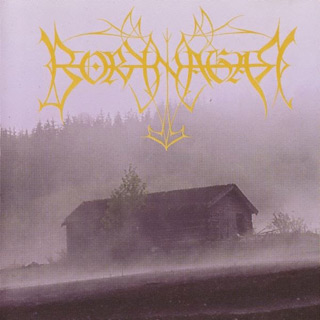

Cryptic Rock – It certainly is and thank goodness for people like you in that sense, because there is plenty of artists doing exactly what you would expect them to do. Let’s talk about the new album, True North. The record contains some extremely moving music. Can you tell us what some of the creative process for the album was like, what are some thematic elements unique to these compositions, and what statements do you think this album sets out to make, if there are any concrete statements you can point out?
Øystein Brun – You know, I have always been a little bit all over the place in terms of our expression. There’s layers, there’s multiple layers, and especially, for example, on the previous albums. I guess we have been a little bit, lyrically speaking, a little bit cloudy, a little bit more philosophical and we haven’t had the big, what can I say, messages that you bring forth in a sense. But to be quite honest, with True North we kind of change a little bit of mindset.
My personal reason for it was that I lost my father back during the release of the Winter Thrice album in 2015, and for me that was a very, very tough period. On the one hand, I had the release of Winter Thrice in 2016, actually my father was buried the day before its release. I had all these things going with the band and the release and everything, and on the other hand I had probably the biggest dark time in my life ever. And I kind of escaped the whole thing a little bit. Just releasing the album, going on tour, festivals, having a good time with the boys; all felt good at that point. I remember one time I came back home after we did a couple of European tours, a lot of festivals, and South America, and things like that. I kind of had to deal with this thing: I hadn’t been with the sorrow and I had some tough days, tough months, call it whatever you want.
I think what shines through on the album, after losing someone as close as my father, one thing was having kids. Being a father, you get a different perspective on life. A lot of things change in life for the better very often, I would say, but losing a close member of the family who was still a young man, he was just 65-years-old; that kind of gave me a serious slap in the face. I felt a little bit like falling down from my euphoric sky or cloud I was on in life, and I think the whole musical, lyrical themes on True North is kind of influenced by this experience. I got a reality check: I went closer to reality and it was brutal. I didn‘t need to find out all of those things about winds or to portray this powerfulness or whatever in the lyrics, as they are usually themed.
This led to much more direct lyrics, and musically speaking to much more straight in-the-face composition in a sense. Still complicated music and lots of layers going on, and different colors and vibes and all that, but it’s a little bit more in-your-face I would say. Same with the lyrics: this time I actually had something I wanted to say. So, to start with the start, so to speak, when my father was sick I was bouncing back and forth to the hospital after he was in intensive care the last months. It was just brutal, almost like being a part of a Horror or a Thriller movie, fighting the time because we didn’t know what was happening to him. His body stopped producing red blood cells, but they didn’t find anything; they didn’t really find a reason for that, so it was a long fight.
Bouncing back and forth to the hospital, my way of steaming out was, quite frankly, to sit down in my studio, just lock the door with just me and my guitar. And doing that turned out to be the song “Wild Father’s Heart,” actually. It was the first I wrote for this album.
Cryptic Rock – Wow, that is a terrible tragedy about your father. To be able to channel the grief into your art must have felt good on a certain level.
Øystein Brun – Yeah, it became what it became, but I wanted to give him a little bit of a tribute; that was my way of dealing with it. I couldn’t do anything else, I couldn’t help him. I built my own house, I built my own studio, I have released quite a lot of albums, I’ve been traveling the world, but I couldn’t help my father. My way of reacting to that was doing this song. So, it’s very personal for me, and I think that maybe gave the whole album, the lyrical content, a little bit of guideline in a sense.
For example, “Mount Rapture” is a different topic. It’s my way of saying that “Guys, I’m done with bullshit, I’m done with superstition, I’m done with anti-vaxxers, I’m done with religion.” I’m 44 years old now. 10 years ago I was very active in the Norwegian Humanist organization, being kind of not political, but a little bit involved in the whole thing with religion and Norway and blah, blah. I was in newspapers and, of course, against Christianity and stuff like that.
In that position I had to be a little bit respectful, I had a lot of discussions with mostly Christian people with their own views. Nice people and all that, but at some point I kind of said I’m so done with this shit. Of course, I respect you as a human being and all that, I don’t want anything bad for people. But I mean, seriously, we have a huge brain, we don’t have fur, we don’t have claws or teeth, but we have a damn huge brain. Let’s use it! A lot of opinions, there’s that saying that everybody is entitled to their opinion. Yeah, kind of.
Cryptic Rock – Well, when your opinions are killing the planet, directly harming individuals and species . . .
Øystein Brun – Yeah, that is a very good example. That’s basically my point – or if your opinion makes war, for example. You know, if I wonder about something about climate change or whatever is happening, I will talk to the scientists, to the people who actually spend their whole lives trying to find the truth about this.
And the same thing, if my car breaks down, I don’t go to a shaman: I go to a guy who is able to fix my car, if you get my point. That’s kind of the message I wanted to flag on that song. That’s enough. Let’s leave the bullshit behind and let’s move forward with the big brains we actually have.
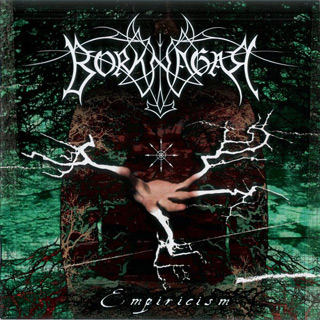

Cryptic Rock – That makes perfect sense. As a whole, Borknagar has been portraying that reverence for nature, evolution, and observation of processes for years. True North does feel more personal than merely talking about these subjects in the more explanatory sense.
Øystein Brun – Yeah, I would say, to end the whole thing about this, it’s more acted on this album. You know before it was more pure, in that the music was a kind of paint the picture type of thing, more like that. But on this album, I would say there is a lot more attitude in a sense.
Cryptic Rock – The difference is palpable. In noticing the artwork for True North, one can see that it is a lot more straightforward – the mountain, the forest. Many Borknagar album covers have featured a fantastical sort of element, but the True North cover takes you back to the first album and to 1997’s Olden Domain in the sense that it’s a much more natural scene. Was that deliberate? Do you think that was more in line with the real, straightforward, stripped down, no bullshit of the album, or do you think it just happened to be what you picked?
Øystein Brun – That was something we totally agreed on and was a deliberate plan. When we did Winter Thrice, I had a little bit of a kick back to Olden Domain for various reasons. Always when I do a new album I want to take a step further, but taking a step further means that I have to take a step even further back in a sense. Even if you look closely, very closely on the last side, down in the corner you can actually see the Olden Domain cover, it’s a little tiny element; you can see this branch with a sort of dragon head. I love details like that.
From the early process with creating True North, we wanted a more clean, organic picture, and also because I was looking back to the debut album. Not to do anything, any sort of copy and paste or anything like that, and not recycling riffs, but I wanted what was the signature of that album, what made that album kind of be that album in a sense – what was good. I think we tried to pick up a little bit on that. I was clear from the very beginning that we wanted to have a (non-fantasy) picture. The cool thing is this is actually a place you can go and see in real life; you can touch it if you want. So quite a lot about the cover and the album themes is more focused on reality.
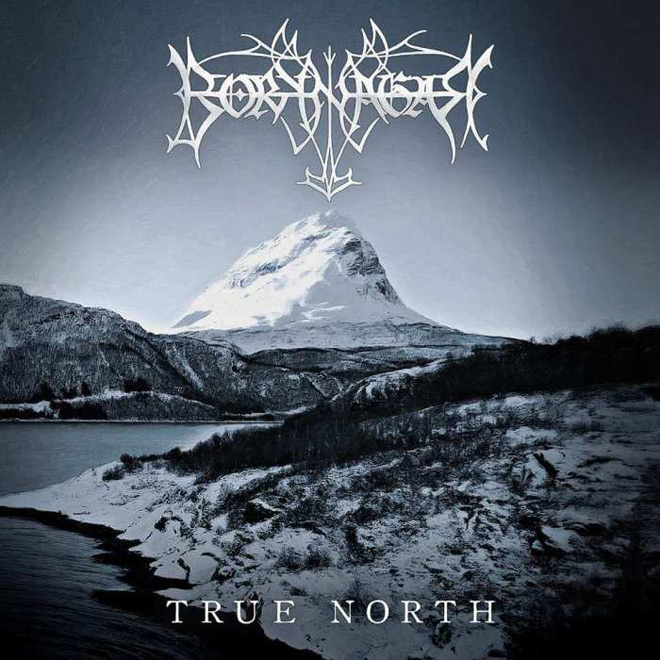
Cryptic Rock – The synthesis of ideas between the music and the cover art is a powerful vehicle of expression, for sure. Borknagar has had its share of lineup changes over the years, with you being the main, unchanging force of the band. You have been blessed with some amazing talents over the years, and working other artists into your vision is something you have learned to relish. How does it enhance or challenge Borknagar to have input from so many minds?
Øystein Brun – You know, I always try to make changes a good thing. At the beginning when we started out with the project, I was the sole force in the band making all the music and the other guys were on the wagon just for the fun of it, that is, for the first album. They have become more serious since then, and it just went from there. I always try to make something positive out of losing people. For example, with the loss of my father, I had to find something to make out of that. It is similar with lineup changes. Sometimes it’s good to part ways with members, and we have remained good friends and all that, but usually it always turns out for the better. It might sound a little bit harsh to say it’s, sometimes it’s like a kind of musical selection in a sense, you know, evolution.
So the changes we had now was kind of something we saw coming with the drummer and guitarist, and also with Andreas. Not complicated at all really: we saw that coming for quite a long time. Bringing new guys into the band, Bjorn (Rennow – drums) and then Jostein (Thomassen) on guitar was awesome. I gave them a lot of space to leave their footprint on the music, to use their best abilities. I’ve always had this idea about having all these great musicians and vocalists in the band. My thought process was how should I go about making them shine and do the best they can, because there’s no reason to not do that. If we have awesome vocalists, why not use them?
Cryptic Rock – With Borknagar, it certainly has been an embarrassment of riches in terms of musicians and especially vocalists. On Winter Thrice, you had a lot of Lars (Nedland – keys, vocals), Vintersorg (Andreas Hedlund – vocals) a great deal of Vortex (Simon Hestnæs – bass guitar, vocals) and some of Garm (Krystopher Rygg – guest vocals).
On True North, it is only Vortex and Lars, and that may be the strongest formula yet. The song “Up North” raises goosebumps in much the same way as “Colossus” and “Frostrite.” Vortex’ voice is a big reason why. And it’s interesting that you have had all these vibrant musicians involved, and yet one can always tell that it’s Borknagar – just like you stated earlier regarding Iron Maiden and Pink Floyd. One can listen to a Borknagar album from 1999 or 2019, and even though they may not sound the same, it is obvious that it is Borknagar.
Øystein Brun – That’s awesome feedback for me because that’s always been my plan, in a sense, to be a little bit outside everything, to be independent in our own musical world. I think that’s a good point, because maybe that’s a little bit of the reason for the musical success I’ve had, because I always strive to make music that is a bit bigger than any one or two musicians. I guess if I quit the band a lot of things would probably not happen, but it doesn’t really harm the band if you get a new drummer or a new guitarist.
The framework of the music is such a strong entity in and of itself in some way that it doesn’t really matter if it’s Simon or Krys doing vocals, if you get my point. I think music should be a little bit above … I’m not really into this term at all, but almost god–like in a sense that it’s a bit, it’s untouchable; it should be a little bit more than just mundane folk music, if you get my point. Something spiritual. I’m an atheist, hard–boiled atheist, but if you get my point. I’ve always tried to reach for the stars with the music in a sense. Not in terms of being a rock star or famous and all that, but in terms of music I’ve always been reaching for the stars.
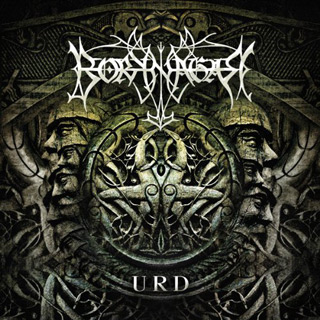
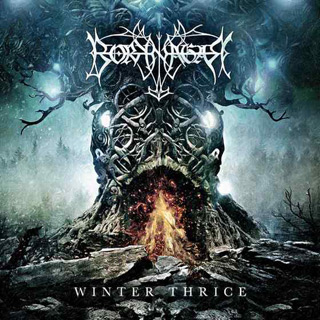
Cryptic Rock – Well, it would seem you are succeeding in that endeavor. The power and feeling behind Borknagar’s music is both beautiful and undeniable. For many people, that experience can only be found in music.
Øystein Brun – I have very much respect for what you’re saying, because I am familiar with that feeling. I appreciate it a lot, to get this kind of feedback is almost overwhelming. Not because it boosts my self- esteem, but because I know the same feeling. You know I have the same relationship towards, let’s say, Pink Floyd. I remember back in the day I was at a Pink Floyd concert with my father back in ‘94: I just had this emotional reaction to that concert; I’d been growing up with Pink Floyd. I had this kind of personal relationship to it, even though Pink Floyd is one of the most popular bands, everybody has a piece of it kind of, but I still feel very personal about it.
Cryptic Rock – Proof positive of how powerful music really is.
Øystein Brun – I mean it’s so damn powerful. Sometimes, I’ve been doing this since I was a kid and the music business is a shitty business at times, but at times it’s beautiful as well. I mean, we are able to travel, but there is a lot of shit we have to deal with in the music business. Sometimes I wonder why do I do this? At this point I can lean back, I can just – I have a house, I have a wife, I have kids. I have everything I need in life basically. But you know, there’s this driving force in music. I don’t know what to call it really.
Cryptic Rock – It is a way of life for so many of us.
Øystein Brun – Yeah, really. Exactly. My wife nowadays for the last so many, many years, when I go grumpy when things start kind of, you know, everything is gray and it’s raining outside, she’s like, “Yeah, just get your ass into the studio and make some music and then come back.” Because she knows perfectly well the thing that actually makes me in a good mood and gets the power back for me. Of course I have to eat, I have to drink, I have to go to the toilet, but except for that I really need music; I can’t really survive without music.
Also, you know, when traveling around the world playing festivals, I remember Panama City for example. It’s so different, and people might speak a different language, but music unifies. It’s almost a big family in a sense.
Cryptic Rock – It really is. Another form of entertainment that unifies many peoples is that of Horror or Sci-Fi cinema. If you are a fan of either genre, do you have any favorites?
Øystein Brun – For Sci-Fi movies, my big thing has always been and will always be Star Wars. It’s commercial, it’s maybe cheesy, but I’ve been really fascinated by the whole Star Wars concept. Saying that, I would say that I’m the old generation, so I of course prefer the first movies. I still watch them. It’s a completely different world, a bubble of something; the logo, the soundtrack, the vibe, I love it.

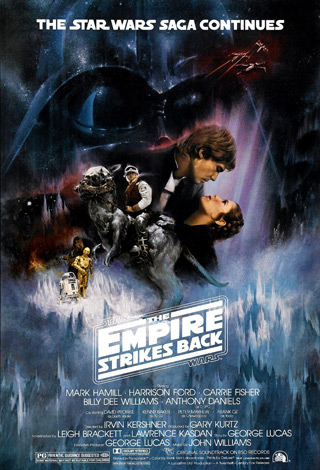
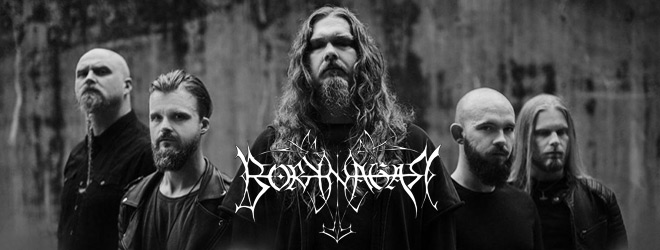
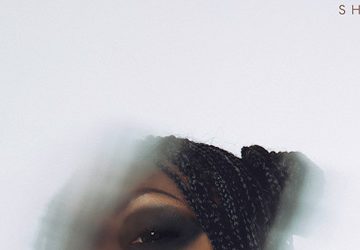
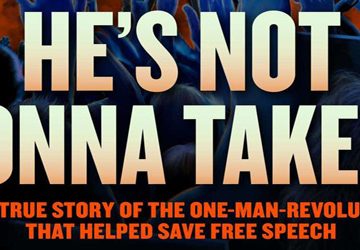


Oh Cryptic Rock, you disappoint me. The man offered a proverbial olive branch to Christians, basically saying “I’m not a Christian and I don’t believe in your God, but I have no ill will towards you” and you fucked it up with that “well, when your views are killing the planet” shit. It must be nice to be so incredibly naive and blindly anti-Christian.
Otherwise good interview.